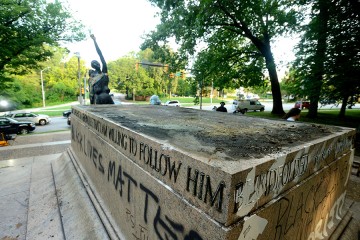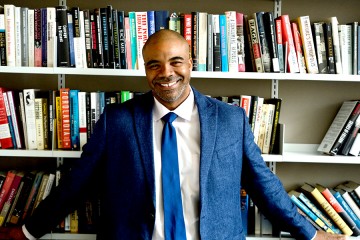Demonstrations by white supremacists and neo-Nazis in Charlottesville, Virginia, last week made clear that President Donald Trump's rhetoric "has clearly provoked and emboldened people and organizations who espouse racist and anti-Semitic ideas," a Johns Hopkins University political scientist writes in Foreign Affairs.
But beyond overt racism, there are other less obvious structural factors that have given rise to Trumpism, Robert C. Lieberman—who served as JHU's provost from 2013 to 2016—and Columbia University's Fredrick C. Harris note in their commentary.
"The perceived threat of the other is what drove Trump's presidential candidacy, and it has become the primary theme of his presidency," they write. "Trumpism evokes, for many voters, a half-remembered America of old. His campaign slogan, 'Make America Great Again,' harkens back to a golden era of American prosperity and social cohesion."
The article is a follow-up to a 2015 piece for the same publication in which Lieberman and Harris wrote that racial inequality remains a real and vexing force in American society, one that is often perpetuated by institutions that appear on their faces to be race-neutral.
Despite this fact, the white working class "feels less privileged than ever before; in fact, its members sense that they are under siege, and that belief fuels racial resentment," Lieberman and Harris say in their new piece. They cite a 2015 survey by the Public Religion Research Institute that asked Americans whether discrimination against whites was on par with discrimination against blacks. Half of the white respondents said it was; among working-class whites, that figured climbed to 60 percent.
"This kind of unease," they note, "creates the opportunity for the more forthright expression of racist sentiments (as, for example, we saw at Trump's campaign rallies) and, ultimately, for more radical action, as at Charlottesville."
Read more from Foreign AffairsPosted in Voices+Opinion, Politics+Society










